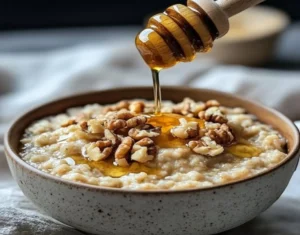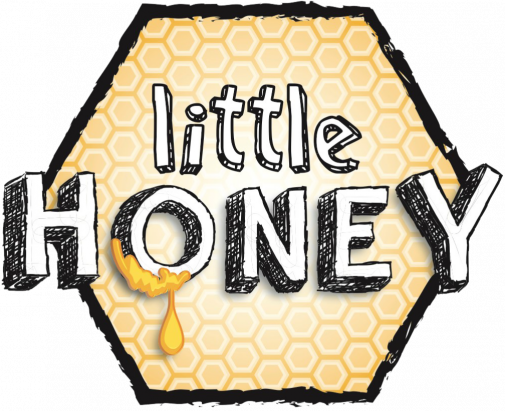
Sidr Honey Straws Specialist Singapore
10 surprising & Powerful health benefits of honey
Honey isn’t just a sweet treat to stir into your tea; it’s a powerful natural remedy packed with health benefits. Whether added to warm water or drizzled over your breakfast, this golden liquid offers more than just flavor. From boosting immunity to enhancing skin, the honey’s health benefits are truly surprising and powerful. It’s no longer just a pantry staple; honey can be your secret to better health, inside and out.
Table of Contents
10 Surprising Honey Health Benefits
How Much Honey Should You Take Daily?
Types of Honey and Why They Matter
FAQs About Honey Health Benefits
10 Surprising Honey Health Benefits
Let’s uncover the lesser-known yet amazing benefits of honey that go far beyond just sweetening your tea.
1. Boosts Immunity Naturally
Honey contains antibacterial and antiviral properties that help your body fight infections. It stimulates the production of immune cells and is packed with antioxidants that protect against cell damage.
Try starting your day with a little honey in warm lemon water to boost your defenses.
2. Soothes Sore Throats and Coughs
One of the most popular uses of honey is for cough relief, and it works! Honey coats your throat, reduces irritation, and helps fight off bacteria.
The World Health Organization even recommends honey as a natural cough suppressant, especially for children over one year old.
3. Supports Digestive Health
Honey promotes the growth of good bacteria in your gut. It can relieve constipation, reduce bloating, and help with indigestion.
Raw honey, in particular, contains prebiotics that feed your gut microbes and improve overall digestion.
4. Promotes Better Sleep
Struggling with sleep? A teaspoon of honey before bed may help.
Honey causes a slight spike in insulin, allowing tryptophan (the sleep hormone) to enter your brain more easily. Plus, its calming properties help you relax naturally.
5. A Natural Energy Booster
Feeling sluggish? Honey is a natural carbohydrate that delivers quick energy.
Unlike processed sugars, honey digests slowly and steadily, giving you sustained energy throughout your workout or busy workday.
6. Helps with Wound Healing
Honey’s antibacterial and anti-inflammatory properties make it ideal for treating wounds, burns, and even ulcers. Medical-grade honey (like Manuka honey) is often used in hospitals to heal skin faster.
Apply it topically to minor cuts or sunburns; it’s a natural first aid remedy.
7. Rich in Antioxidants
Honey is rich in polyphenols, which are powerful antioxidants that help reduce oxidative stress and inflammation in the body.
Antioxidants protect against chronic diseases like cancer, diabetes, and heart disease. The darker the honey, the higher its antioxidant content.
8. Improves Heart Health
Regular consumption of honey may help lower bad cholesterol (LDL) and increase good cholesterol (HDL). Its antioxidants also support healthy blood pressure levels and reduce the risk of heart disease.
It’s a sweet step toward a healthier heart.
9. Good for Skin and Acne
Honey is a natural humectant; it attracts moisture from the air and locks it into your skin.
Used in face masks or spot treatments, honey can soothe irritated skin, reduce acne, and even fade scars.
Sidr Honey in Singapore skincare routines is becoming more popular thanks to its gentle, nourishing effects.
10. Supports Brain Function
Research shows that honey may help prevent memory decline and improve focus. It reduces inflammation in the brain and increases the brain-derived neurotrophic factor (BDNF), a protein that promotes learning and memory.
Sweet news for students and seniors alike!
How Much Honey Should You Take Daily?
For most adults, 1–2 tablespoons per day is considered safe and beneficial. It can be added to warm drinks, yogurt, toast, or taken on its own.
Children under 1 year old should never consume honey due to the risk of botulism.
Is a Spoonful of Honey a Day Good for You?
Types of Honey and Why They Matter
| Type of Honey |
Key Benefit |
| Raw Honey |
Rich in enzymes and nutrients |
|
Clover Honey |
Mild taste, great for everyday use |
|
Acacia Honey |
Low glycemic index, good for diabetics |
|
Manuka |
Best for healing wounds and infections |
Honey in Singapore often includes tropical varieties like wildflower and longan honey, both packed with unique floral benefits.
Precautions and Side Effects
While honey is natural, moderation is key. Overconsumption can lead to:
- High sugar intake
- Blood sugar spikes
- Allergic reactions (in rare cases)
Always choose raw, unprocessed honey to get the most from your honey’s health benefits.
Conclusion
From boosting your immune system to enhancing your skin, honey’s health benefits are truly impressive. Just a little honey in your routine can support better sleep, digestion, heart health, and more.
And with the growing variety of honey in Singapore and worldwide, there’s no shortage of options to explore, each with its unique taste and benefits.
So why not swap out refined sugar and turn to nature’s nectar?
Call to Action
Ready to embrace the sweet power of honey?
Start with one small spoon each morning. Try local varieties or raw, unfiltered types to maximize your results. Your body and your taste buds will thank you.
Explore the best honey for your health today and contact us.
FAQs About Honey Health Benefits
Q1: Can I eat honey every day?
Yes! Just stick to 1–2 tablespoons per day for optimal health benefits.
Q2: Is raw honey better than processed honey?
Absolutely. Raw honey retains all the nutrients and enzymes that are lost in commercial processing.
Q3: Can honey help with allergies?
Some people believe local honey may reduce seasonal allergies, but more research is needed.
Q4: Is honey safe for diabetics?
In small amounts, honey may be safer than refined sugar. However, diabetics should monitor their intake closely.
Q5: How long does honey last?
Honey never spoils if stored properly. Its natural composition resists bacteria and mold growth.
Share this post :
Categories
Latest Post


Boost Your Health Naturally: Honey Superfoods for Immunity

Festive Kueh Recipes for Hari Raya & Chinese New Year





